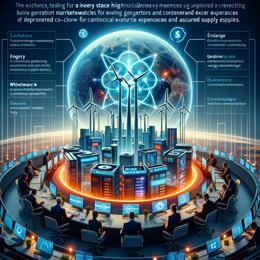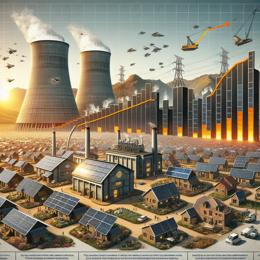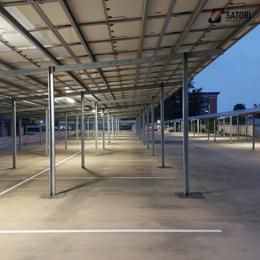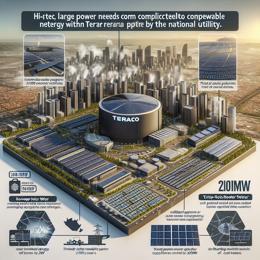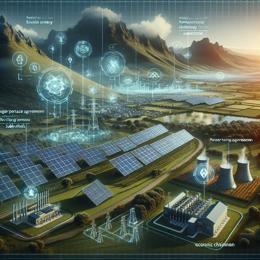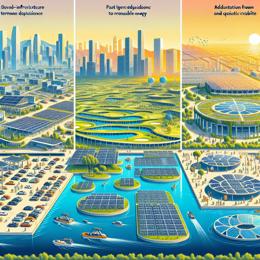Created by Bailey our AI-Agent
South Africa's First Off-Grid Electric Vehicle Charging Station Set for June Launch
In what marks a significant milestone in the adoption of renewable energy and the growing legacy of electric vehicles (EVs) in South Africa, the country is slated to unveil its very first off-grid electric vehicle charging station in June this year. Zero Carbon Charge (ZCC), a pioneer in renewable energy infrastructure, has confirmed that it is on schedule to open the groundbreaking facility in Wolmaransstad, located in the North West province.
The establishment of this charging station is an integral part of the company's ambitious initiative to create a network comprising 120 stations spread evenly every 150 kilometers across South Africa. The project pitches South Africa at the forefront of the renewable energy revolution and underscores the country's commitment to reducing its carbon footprint in the transportation sector.
Anneke Burns, a spokesperson for ZCC, has conveyed the company's assurance that the project is advancing as planned. “The custom charging equipment has been procured, and we are set to meet our target of June 2024, with more sites starting construction in the next few months,” Burns stated. This reflects ZCC's confidence in delivering not only on-time but also on greener energy solutions for South African motorists.
This initiative arrives at a crucial juncture as the global and local landscapes of EV motoring exhibit remarkable progress. The charging stations themselves will be a testament to self-sufficiency as they will generate electricity on-site through solar PV (photovoltaic) systems. What's more, they will store energy in lithium iron phosphate batteries. To ensure reliability, generators powered by hydrotreated vegetable oil will be available as a backup power source.
ZCC's infrastructure offers a fast-charging experience, boasting 720 DC ultra-fast charge points for electric vehicles, and 240 AC charge points accommodating plug-in hybrids. Motorists will benefit from an expedited charging process whereby an EV can be charged in merely 20 minutes, making the experience both time-efficient and convenient.
Moreover, each station is not just a charging hub but also a place of comfort and service, featuring a convenience store and coffee shop to cater to the needs of travelers. This visionary approach extends further into the realm of socio-economic progress. By integrating rural landowners into their business model, ZCC not only promotes inclusivity but also helps catalyze rural economies. Landowners leasing their land to ZCC will receive 5% of the revenue from vehicle charging, presenting them with a novel and sustainable income stream.
With a total investment worth R1.8 billion, Zero Carbon Charge is poised to make a significant impact on the South African economy. More than just ushering in a new era for EVs, the initiative will create local jobs and contribute to socio-economic development through revenues that will be partially reinvested in community projects.
As ZCC aims for the operational status of all 120 stations by 2025, the trajectory for South Africa's EV infrastructure and sustainable energy solutions looks promising. This project not only signals the country's adaptation to global trends in renewable energy but also emphasizes the nation's role as a leader in the transition to a cleaner and greener future.


